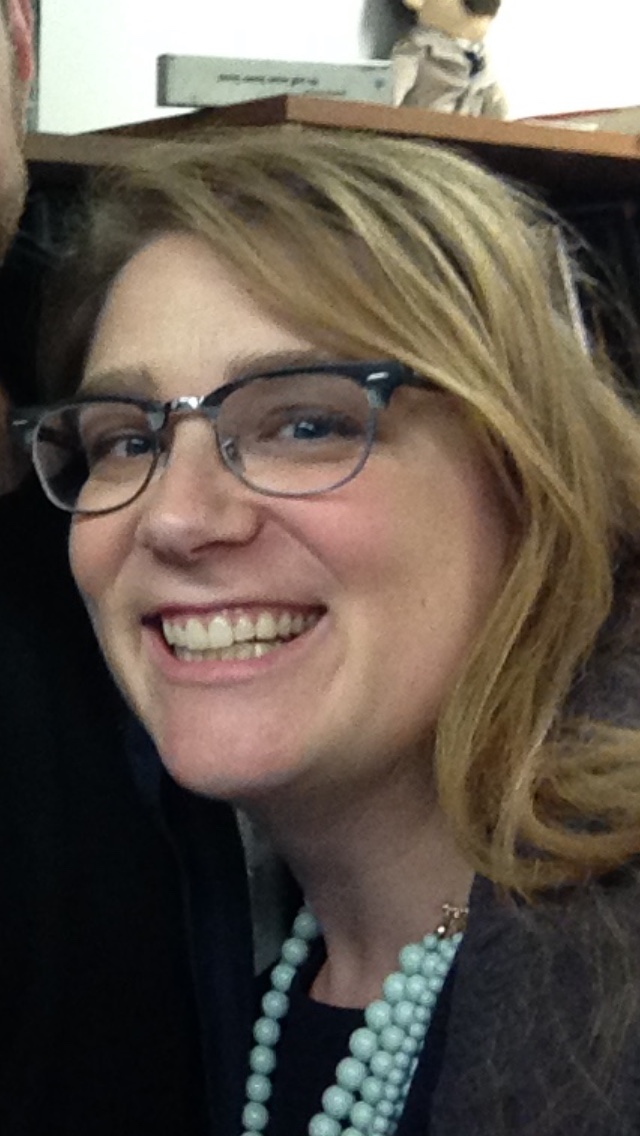
I am Katherine Rye Jewell, an Assistant Professor of History at Fitchburg State University, located in central Massachusetts. I teach courses on the twentieth century United States with a particular focus on politics, political economy, and culture. I regularly teach the second half of the U.S. survey (1877-present at our institution), as well as upper-level elective such as the U.S. 1920-1945, 1945-present, Technology and American Society, U.S. Economic History, as well as courses on American conservatism and liberalism, media and politics, and business history. In my teaching I incorporate popular culture and entertainment, as I have found that these types of sources are effective in engaging students and in illustrating the thematic developments covered.
My research reflects new trends in political history. I explore how non-political figures such as business leaders and college students confront and interact with policy and politics. I am interested in how groups and institutions create networks and identities in response to national political and cultural developments. My first book, which will likely be published late in 2016, examines a group of southern industrialists (the Southern States Industrial Council) and how they rebranded the South as the Nation’s No. 1 Economic Opportunity in response to the New Deal. In my second book, which I have recently started researching, explores the rise (and “fall”) of college radio, and how this network of non-commercial stations were shaped by institutional, community, and policy priorities as well as how they became a significant influence in the rise of indie and alternative music in the 1980s and 1990s.
As a teacher and a scholar, I believe in the value of historical thinking (the “unnatural act,” as Sam Wineburg tells us). My goal in the classroom is to provide students with a vocabulary that can describe the skills they gain from the history classroom, not only the content they receive. In recent years I have attempted to rethink the teaching of the survey, offering a thematic “choose-your-own-adventure,” and have also rethought how to teach the course in online and hybrid/blended formats.
I am Katherine Rye Jewell, an Assistant Professor of History at Fitchburg State University, located in central Massachusetts. I teach courses on the twentieth century United States with a particular focus on politics, political economy, and culture. I regularly teach the second half of the U.S. survey (1877-present at our institution), as well as upper-level elective such as the U.S. 1920-1945, 1945-present, Technology and American Society, U.S. Economic History, as well as courses on American conservatism and liberalism, media and politics, and business history. In my teaching I incorporate popular culture and entertainment, as I have found that these types of sources are effective in engaging students and in illustrating the thematic developments covered.
My research reflects new trends in political history. I explore how non-political figures such as business leaders and college students confront and interact with policy and politics. I am interested in how groups and institutions create networks and identities in response to national political and cultural developments. My first book, which will likely be published late in 2016, examines a group of southern industrialists (the Southern States Industrial Council) and how they rebranded the South as the Nation’s No. 1 Economic Opportunity in response to the New Deal. In my second book, which I have recently started researching, explores the rise (and “fall”) of college radio, and how this network of non-commercial stations were shaped by institutional, community, and policy priorities as well as how they became a significant influence in the rise of indie and alternative music in the 1980s and 1990s.
As a teacher and a scholar, I believe in the value of historical thinking (the “unnatural act,” as Sam Wineburg tells us). My goal in the classroom is to provide students with a vocabulary that can describe the skills they gain from the history classroom, not only the content they receive. In recent years I have attempted to rethink the teaching of the survey, offering a thematic “choose-your-own-adventure,” and have also rethought how to teach the course in online and hybrid/blended formats.
